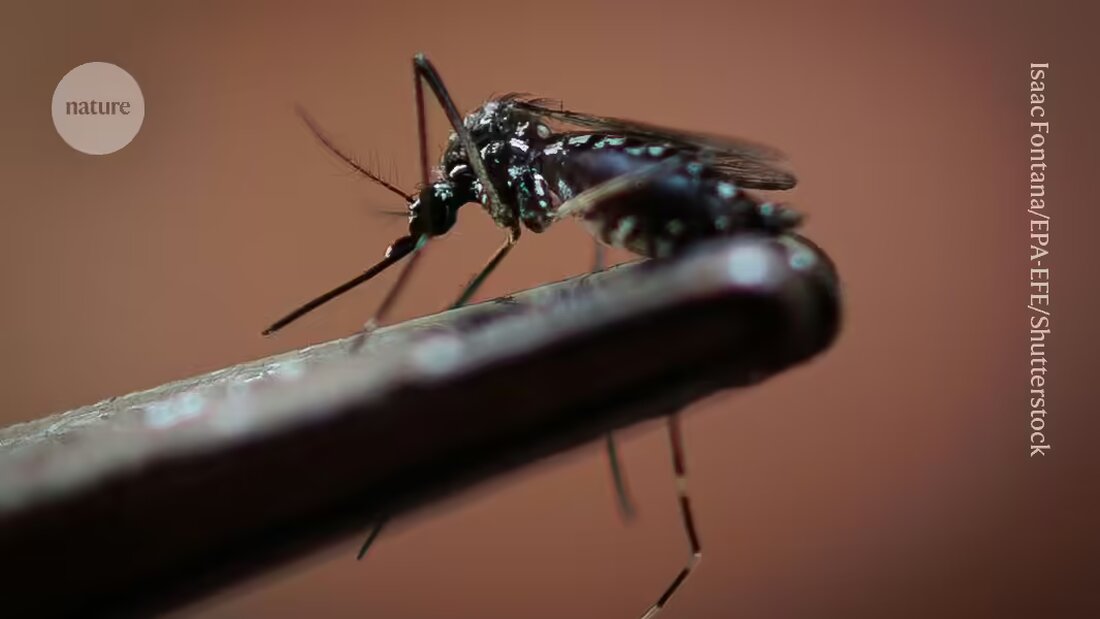A pair of hormones work together to control the desire Mosquitoes for blood to activate or suppress, according to a study published today 1.
The results reveal a possible mechanism by which the Attraction of mosquitoes to people and other animals explained, which was previously a mystery. "The discovery may provide new pesticide targets for preventing mosquito reproduction and disease transmission," said Zhen Zou, an entomologist at the Institute of Zoology of the Chinese Academy of Sciences in Beijing.
The females of most mosquito species – includingAedes aegypti, the carrier of viruses Dengue fever, yellow fever and Zika - feed on animal blood to develop their eggs. But once they have had a blood meal, their desire for blood ends until they lay their eggs.
Michael Strand, an entomologist at the University of Georgia in Athens, wanted to understand in more detail the mechanism that controls this cycle of attraction. He noticed that levels of a hormone produced in the insect's gut, called neuropeptide F (NPF), increased when the mosquitoes sought a host and disappeared after they drank blood. “This motivated us to examine whether the presence of this hormone was a driving factor in the search for a blood meal,” says Strand.
Together with his colleagues, Strand analyzed mosquito enteroendocrine cells, which produce hormones in the gastrointestinal tract. As expected, NPF levels rose before the mosquitoes had a blood meal and fell six hours after they fed. The mosquitoes' attraction to humans matched this hormonal drive: They showed no interest in a human hand on the day of their meal, but headed straight for it after they laid their eggs. “There was an almost perfect reflection,” says Strand.
Next, the researchers turned off the gene that produces NPF in female mosquitoes and found that it reduced their attraction to humans. When they injected the hormone into these mutant mosquitoes, their interest in humans was restored, but it had little effect on mosquitoes carrying eggs.
The team also found that certain neurons extending into the gut produced another hormone called RYamide, which regulates insect feeding behavior. Just as NPF levels decreased after a blood meal, RYamide levels increased. In mosquitoes without eggs, an injection of RYamid reduced their NPF levels and suppressed their attraction to human hosts, while the control mosquitoes - with natural hormone levels - headed straight for a human hand. This suggests that NPF and RYamid work together to stimulate and suppress host attraction in mosquitoes.
Strand and his colleagues plan to investigate additional molecular factors involved in host attraction to build a more complete picture. “Life is never easy,” he says.

 Suche
Suche
 Mein Konto
Mein Konto

